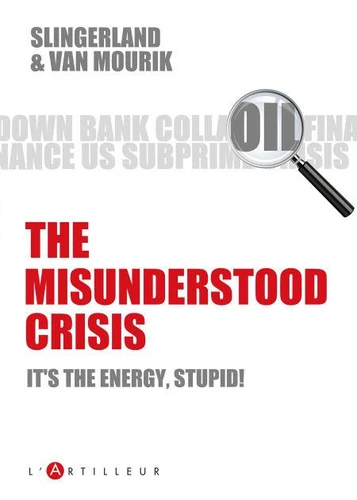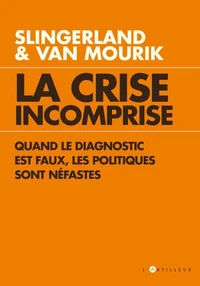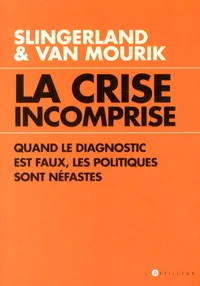The misunderstood crisis. it's the energy, stupid!
Par :Formats :
Disponible dans votre compte client Decitre ou Furet du Nord dès validation de votre commande. Le format ePub protégé est :
- Compatible avec une lecture sur My Vivlio (smartphone, tablette, ordinateur)
- Compatible avec une lecture sur liseuses Vivlio
- Pour les liseuses autres que Vivlio, vous devez utiliser le logiciel Adobe Digital Edition. Non compatible avec la lecture sur les liseuses Kindle, Remarkable et Sony
- Non compatible avec un achat hors France métropolitaine
 , qui est-ce ?
, qui est-ce ?Notre partenaire de plateforme de lecture numérique où vous retrouverez l'ensemble de vos ebooks gratuitement
Pour en savoir plus sur nos ebooks, consultez notre aide en ligne ici
- Nombre de pages176
- FormatePub
- ISBN978-2-8100-0593-2
- EAN9782810005932
- Date de parution15/01/2014
- Copier CollerNon Autorisé
- Protection num.Adobe & CARE
- Taille619 Ko
- Infos supplémentairesepub
- ÉditeurL'artilleur
Résumé
"Bank collapses, the sub-prime crisis and state debts running out of control - since 2008, experts and politicians have defined the economic crisis as a derailment of the financial system. Governments, without hesitation, instituted emergency bank bailouts and numerous other measures to revive the ailing economy. Five years on, the recovery is, at best, faltering and, at worst, illusory. In this timely and thought-provoking book, Dutch oil industry experts Maarten van Mourik and Oskar Slingerland argue that the crisis has been falsely diagnosed.
They make a compelling case that energy, rather than the financial system, lies at its root. In 2006, by analysing industry data, they correctly predicted steep oil price rises and the economic shock that would follow. Using the same data, they now argue that the era of cheap oil is over, and with it our prospects for long-term growth. The situation should trigger a radical change of our economic and production models, yet western governments have failed to grasp the challenge.
If nothing changes, the book argues, we will be heading further into deep trouble. ".
They make a compelling case that energy, rather than the financial system, lies at its root. In 2006, by analysing industry data, they correctly predicted steep oil price rises and the economic shock that would follow. Using the same data, they now argue that the era of cheap oil is over, and with it our prospects for long-term growth. The situation should trigger a radical change of our economic and production models, yet western governments have failed to grasp the challenge.
If nothing changes, the book argues, we will be heading further into deep trouble. ".
"Bank collapses, the sub-prime crisis and state debts running out of control - since 2008, experts and politicians have defined the economic crisis as a derailment of the financial system. Governments, without hesitation, instituted emergency bank bailouts and numerous other measures to revive the ailing economy. Five years on, the recovery is, at best, faltering and, at worst, illusory. In this timely and thought-provoking book, Dutch oil industry experts Maarten van Mourik and Oskar Slingerland argue that the crisis has been falsely diagnosed.
They make a compelling case that energy, rather than the financial system, lies at its root. In 2006, by analysing industry data, they correctly predicted steep oil price rises and the economic shock that would follow. Using the same data, they now argue that the era of cheap oil is over, and with it our prospects for long-term growth. The situation should trigger a radical change of our economic and production models, yet western governments have failed to grasp the challenge.
If nothing changes, the book argues, we will be heading further into deep trouble. ".
They make a compelling case that energy, rather than the financial system, lies at its root. In 2006, by analysing industry data, they correctly predicted steep oil price rises and the economic shock that would follow. Using the same data, they now argue that the era of cheap oil is over, and with it our prospects for long-term growth. The situation should trigger a radical change of our economic and production models, yet western governments have failed to grasp the challenge.
If nothing changes, the book argues, we will be heading further into deep trouble. ".






